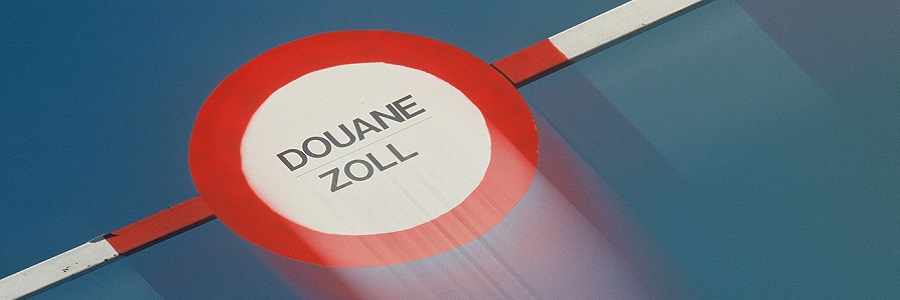Dylan Geraets
LERU Brexit Seminar
Introduction
Keeping the Irish border open after Brexit is one of the key challenges that the UK and EU negotiation teams currently face. In June 2018 the UK Government presented its so-called “backstop” proposal in the form of a Technical Note on the Temporary Customs Arrangement between the UK and the EU. The backstop proposal has recently proven to be one of the crucial issues in the negotiations for a deal between the UK and the EU on the terms of Brexit.
This post examines why the Irish border issue is critical from a customs perspective, for both the UK and the EU. It assesses the backstop proposal and links it to the provisions of the Union Customs Code (UCC), that currently governs the customs relationship between the EU Member States, including the United Kingdom. Unless both sides agree to a customs union, which seems unlikely given the red lines that have been drawn, once Brexit occurs, Northern Ireland and the UK will leave the customs territory of the Union. This has significant implications for the free movement of goods between Ireland (and the rest of the EU-27) and the UK and Northern Ireland.
The current situation: the provisions of the UCC
The UCC is a means to give effect to the existence of a customs union between the EU Member States, which in turn facilitates the free movement of goods. It creates a single customs territory within which goods can more or less “freely” travel from the territory of one EU Member State to the territory of another EU Member State and within which uniform customs procedures should apply.
The territories of the member states of the EU are, according to Article 4(1) of the UCC, part of the “customs territory of the Union”. “[T]he territory of the United Kingdom of Great Britain and Northern Ireland and of the Channel Islands and the Isle of Man” is therefore part of the customs territory of the EU.
The significance of this provision for the free movement of goods within the EU is often overlooked. Through this provision the EU determines the “customs status” of goods in terms of the treatment they are entitled to receive from customs authorities in the EU. In this regard Article 5(22) of the UCC creates a distinction between Union goods and non-Union goods. Article 5(23) provides some basic “rules of origin” to define the concept of Union goods, by stating that Union goods are those goods that are either:
(a) “wholly obtained” in the customs territory of the Union, meaning that they are one of the goods listed in Article 31 of the UCC’s Delegated Act, such as e.g. mineral products that have been extracted, vegetable products that have been harvested or products derived from live animals that have been raised there;
(b) brought into the customs territory of the Union from countries or territories outside that territory and released for free circulation, meaning that a customs debt in the form of an obligation on a person to pay the amount of import duty which applies to specific goods is incurred; or
(c) goods obtained or produced in the customs territory of the Union, either solely from goods referred to in point (b) or from goods referred to in points (a) and (b);
Non-Union goods are, conversely, defined in Article 5(24) of the UCC as goods other than those referred to in Article 5(23), or those which have lost their customs status as Union goods.
Brexit and a Backstop?
Once the United Kingdom of Great Britain and Northern Ireland would leave the EU, they conversely would seize to be part of the customs territory of the Union. The consequences of that are clear, based on the provisions of the UCC. “Wholly obtained” products in the UK and northern Ireland would no longer be treated as “Union goods” for the purpose of the UCC. The same applies to products that are produced there. In principle, their status as non-Union goods means that, as soon as they “brought into the customs territory of the Union” and are presented to the customs authorities, will be subject to the customs regimes that are provided for in the UCC. Independently of the height of actual tariff measures that may exist, there will no longer be a presumption (as there is today), that goods originating in Northern Ireland are “Union goods”. This means that, under the provisions of the UCC, the Irish customs authorities will be required to treat them as non-Union goods, with all of the consequences that this brings about. Customs declarations will be needed and the EU will require safety and security declarations for goods originating in the UK.
In order to avoid the immediate creation of a hard border between Northern Ireland and the Republic of Ireland, the UK Government has presented a “Backstop” proposal which would imply:
- The elimination of tariffs, quotas, rules of origin and customs processes including declarations on all UK-EU trade;
- The UK outside the scope of the Common Commercial Policy (CCP). The application of the EU’s common external tariff at the UK’s external border, alongside the UCC and such other parts of the CCP that are required to enable the temporary customs arrangement to function. This implies that the UK would collect customs duties on the EU’s behalf;
- The UK able to negotiate, sign and ratify free trade agreements with rest of world partners and implement those elements that do not affect the functioning of the temporary customs arrangement.
However, as the difficulties in the negotiations have established, these elements of the Backstop proposal would appear to be incompatible with the concept of the customs territory of the Union as defined in the UCC. Indeed, as the EU’s chief negotiator Michael Barnier has pointed out, there are a number of problems that exist:
- The UK applying its own tariff would mean that it could apply lower tariffs than those of the EU whilst remaining in a single market for goods. According to Barnier, “this could cause a serious risk of distortion of trade flows, to the detriment of our enterprises”;
- The UK collecting customs duties for the EU would mean “the Union losing control over the collection of tax revenue, whether customs duties for the European budget or VAT revenue for the Member States.”
All of this lead him to conclude that it is known that “the United Kingdom wishes to take back control of its borders, its policies and its money” and that this choice is respected, but conversely, Barnier indicated that the UK “must in turn accept that we need to retain control over our customs borders.”
Conclusion
Up and until the negotiations between the UK and the EU on the former’s withdrawal are concluded, uncertainty about the free movement of goods between Northern Ireland and the Republic of Ireland will remain. This post has aimed to shed light on the complexities that underpin the discussions from a customs perspective. The concept of the customs territory of the Union is critical for the understanding of the future position of Northern Ireland.
 Dylan Geraets
Dylan Geraets
KU Leuven
Dr Dylan Geraets is an Affiliated Senior Researcher at KU Leuven and a practising lawyer with Mayer Brown specialising in international dispute settlement, trade defence measures, customs rules, trade negotiations, export controls, and sanctions.
Shortlink: edin.ac/2q64IQa | Republication guidance
Please note that this article represents the view of the author(s) alone and not European Futures, the Edinburgh Europa Institute or the University of Edinburgh.
 This article is published under a Creative Commons (Attribution-NonCommercial-NoDerivatives 4.0 International) License.
This article is published under a Creative Commons (Attribution-NonCommercial-NoDerivatives 4.0 International) License.


